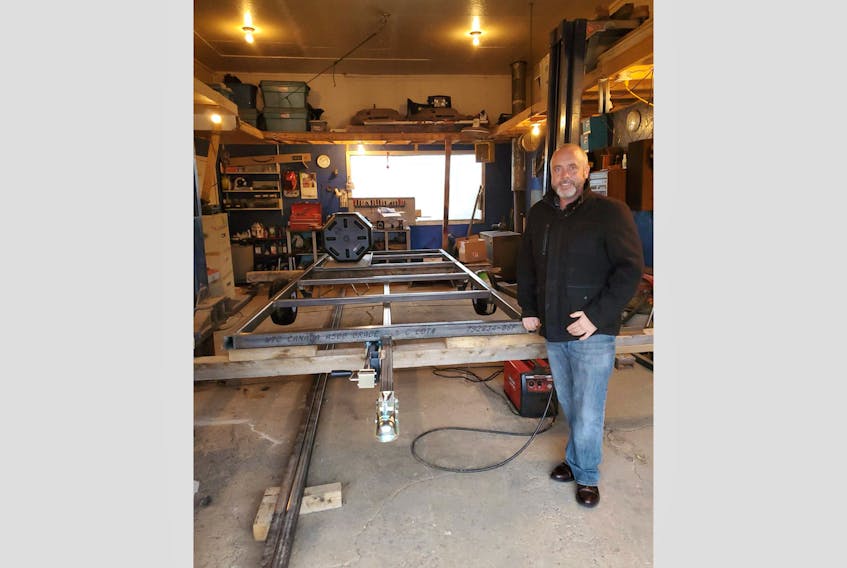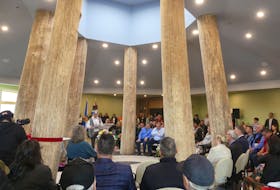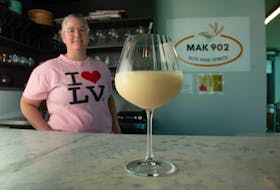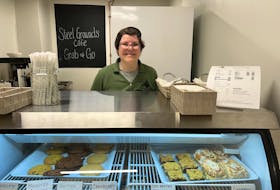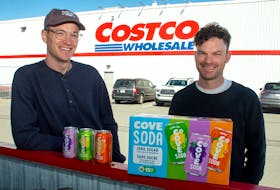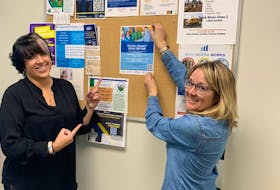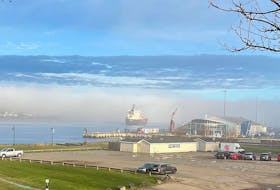MAIN BROOK, N.L. — An entrepreneur in Main Brook is finding innovative ways to reuse waste.
Ben Wiper is a 'Come From Away' who settled in Main Brook in 2017.
An economist and an entrepreneur with an environmental conscience, his modus operandi involves acquiring byproducts from other businesses, so it doesn't go to waste, and turning it into a new product for the market.
He will focus on fish, food and forest waste, hence the title of his business 3F Waste Recovery.
Wiper has a number of projects planned on the Great Northern Peninsula, with partners local, provincial and foreign.
He’s in the process of setting up one of those enterprises now, and he believes he’s found an innovative way to improve composting.
Wiper is calling it a “mid-volume, semi-automated composter” and he says it’s a “brand new technology”.
Wiper recently acquired six composting tumblers, affixed with a drive shaft and motor.
He will have it arranged so a simple button push will turn on the motor and compost tumbling will be done automatically.
Wiper says the device will offer temperature, moisture and humidity readings and if more water is required, a water pump can be turned on when needed.
It is placed on a boat trailer for portability.
“It’s a new way of putting existing things together,” he told The Northern Pen.
He plans to do a trial run on a prototype by next spring.
But Wiper is confident it will work.
He intends to acquire more units and hopes to produce three tonnes of compost a month and 15 tonnes a year.
He will take in fish waste from processors, leftover forestry material from local contractors, and agricultural and livestock waste.
Wiper believes shells for shellfish will be particularly important to lower soil acidity and improve produce quality.
“We have all this shell waste and our soil in Newfoundland is called podzolic soil and it’s slightly too acidic to be optimal for growing,” he said. “So, by putting shells in, which are alkaline, reduces acidity and my compost becomes more of a soil amendment. Our hypothesis is you’ll actually get better growing produce by using our compost because it’s designed for the challenges of Newfoundland soil.”
Wiper aims to sell units at a cost of $8,500 each.
He believes the product fills a “gap” in the market for this scale of composting.
“You could either buy a $500 hand-cranked tumbler or up to $300,000 for a massive machine that did 100,000 lbs. a month,” he explained. “But there was nothing in the middle, for a small town, a hospital, a restaurant, or grocery store that produces organic waste and doesn’t have the labour to operate a hand-crank all day or isn’t going to spend for a large machine.”
This type of system could be available at a more affordable price.
Wiper received a $15,000 grant from the Multi-Materials Stewardship Board, through the Solid Waste Management Innovation Fund, to purchase the equipment earlier this year.
He was also grateful to receive a National Research Council grant, through the College of the North Atlantic, that paid for a student engineer.

